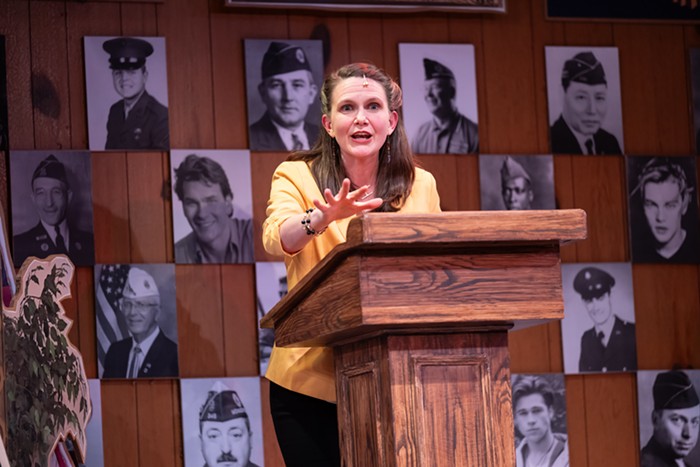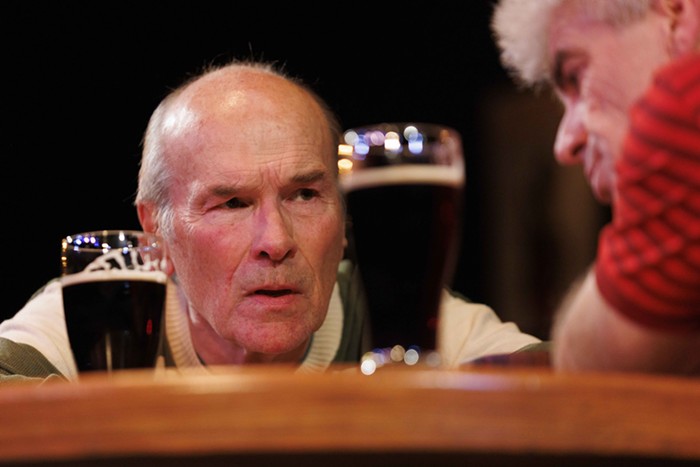Portland Playhouse takes on the first half of Tony Kushner's two-part Angels in America, a "gay fantasia on national themes" in which intersecting storylines address the problems of national and gay identity through the lens of the burgeoning AIDS crisis. This play is notable for how many facets it grants the gay experience: one man abandons his long-term boyfriend, unable to cope with the realities of living with someone sick; a powerful conservative lawyer refuses to define himself as a homosexual, even after contracting HIV from one of the many men he's slept with; and a Mormon in denial about his sexuality drives his pill-popping wife slowly nuts.
As the play's central character, a drag queen with HIV who just might be a prophet, Wade McCollum's histrionic performance would be described as "Oscar baiting" if it appeared in a movie this month (it's too depressing to consider that anyone might actually court a local theater award. No offense, Drammy Awards). Compare his showboating to fully lived-in performances from Gretchen Corbett, Lorraine Bahr, and especially Ebbe Roe Smith as conservative lawyer Roy Cohn. These older actors ground the ensemble and provide the show its strongest moments, like a surprisingly moving scene between a Mormon housewife (Corbett) and her real estate agent and friend (Bahr). It's hardly a dramatic interaction, in the context of the play—no one is shitting blood or ass-fucking a stranger—but its very quietness adds to its resonance.
As slick and enjoyable as this production is, Portland Playhouse's decision to stage Angels is worth interrogating. It is, after all, a 20-year-old relic of an era that is now thankfully behind us. Angels is an incredible script no matter how you frame it: one could probably find some topical connections to current issues like gay rights or health care; or you could dismiss the play's dated politics in favor of its observations about the sacrifices love requires. Personally, I find it most compelling as an effective example of political theater: a script that integrates personal, topical, and spiritual elements into a whole that's at once emotionally impactful, very funny, and politically pointed. Angels in America isn't just a play with something to say—it's a play that made a deliberate assault on the status quo of its time, and a play that lived on to see that status quo change.



















